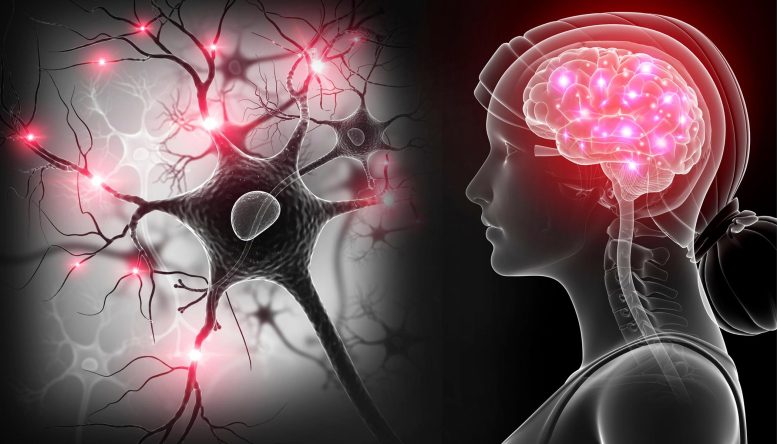
New research suggests that the use of menopausal hormone therapy is linked to a heightened risk of dementia and Alzheimer’s disease. Although the study’s findings shouldn’t be taken as a direct causal relationship, it calls for further research on the topic.
An increase was observed even in individuals who used it for a short term around the age of menopause; despite the unclear causal connection, it is imperative to explore these findings more extensively in future studies.
Menopausal hormone therapy could be linked to a higher risk of dementia and Alzheimer’s disease, according to a comprehensive Danish study recently published in The BMJ.
The study indicated that not only long-term users but also short-term users around the age of menopause (55 years or younger) as is currently recommended are at an increased risk.
These findings align with the largest clinical trial carried out on this topic, and the researchers call for further studies “to explore if the observed association in this study between menopausal hormone therapy use and increased risk of dementia illustrates a causal effect.”
In a linked editorial, researchers argue that while this study has several strengths, the observed associations should not be used to infer a causal relationship between hormone therapy and dementia risk.
Menopausal hormone therapy (widely known as HRT) is used to relieve common menopausal symptoms such as hot flashes and night sweats. Treatments include tablets containing estrogen only, or a combination of estrogen and progestogen, as well as skin patches, gels, and creams.
Large observational studies have shown that long-term use of menopausal hormone therapy is associated with the development of dementia, confirming findings from the Women’s Health Initiative Memory Study, the largest clinical trial on this topic.
However, the effect of short-term use of menopausal hormone therapy around the age of menopause, as is currently recommended, remains to be fully explored. The effect of different treatment regimens on the risk of dementia is also uncertain.
To try and fill these knowledge gaps, researchers in Denmark assessed the association between the use of combined estrogen and progestin (synthetic progestogen) therapy and the development of dementia according to type of hormone treatment, duration of use, and age at use.
Drawing on national registry data, they identified 5,589 cases of dementia and 55,890 age-matched dementia-free controls between 2000 and 2018 from a population of all Danish women aged 50-60 years in 2000 with no history of dementia and no underlying reason preventing them from using menopausal hormone therapy.
Other relevant factors including education, income, hypertension, diabetes, and thyroid disease were also taken into account.
The average age at diagnosis was 70 years. Before a diagnosis, 1,782 (32%) cases and 16,154 (29%) controls had received estrogen-progestin therapy from an average age of 53 years. The average duration of use was 3.8 years for cases and 3.6 years for controls.
The results show that, compared with people who had never used treatment, people who had received estrogen-progestin therapy had a 24% increased rate of developing all-cause dementia and Alzheimer’s disease, even in women who received treatment at the age of 55 years or younger.
Rates were higher with longer use, ranging from 21% for one year or less to 74% for more than 12 years of use.
The increased rate of dementia was similar between continuous (estrogen and progestin taken daily) and cyclic (daily estrogen with progestin taken 10-14 days a month) treatment regimens.
The use of progestin-only therapy and vaginal estrogen only was not associated with the development of dementia.
This is an observational study, so can’t establish the cause, and the researchers were not able to isolate vascular dementia from other types of dementia or distinguish between tablets and other ways to take hormone therapy, such as patches.
What’s more, they can’t rule out the possibility that women using hormone therapy have a predisposition to both menopausal vasomotor symptoms (eg. hot flushes, night sweats) and dementia.
However, this was a large study based on high-quality treatment data with a long follow-up time. The authors were also able to investigate cyclic and continuous hormone formulations separately, as well as age of starting menopausal hormone therapy and length of treatment, allowing them to analyze an important overlooked aspect of this topic—for example, dementia risk in short-term users of menopausal hormone therapy around the age of menopause onset, as recommended in treatment guidelines.
As such, they conclude: “Further studies are warranted to determine whether these findings represent an actual effect of menopausal hormone therapy on dementia risk, or whether they reflect an underlying predisposition in women in need of these treatments.”
This view is supported by US researchers in a linked editorial, who say “confounding factors could be producing a spurious signal for higher dementia risk in younger women using hormone therapy for either a short or long duration.”
“These findings cannot inform shared decision-making about the use of hormone therapy for menopausal symptoms,” they write. “Randomised clinical trials provide the strongest evidence on the effect of hormone therapy on dementia risk.”
Furthermore, they say brain imaging biomarkers “might help to identify the effects of hormone treatment on dementia pathophysiology at an earlier stage, making assessment of its influence on dementia risk in trials of recently postmenopausal women feasible.”
Reference: “Menopausal hormone therapy and dementia: nationwide, nested case-control study” by Nelsan Pourhadi, Lina S Mørch, Ellen A Holm, Christian Torp-Pedersen and Amani Meaidi, 28 June 2023, BMJ.
DOI: 10.1136/bmj-2022-072770









Be the first to comment on "Hormone Therapy Linked to 24% Increased Risk of Dementia"